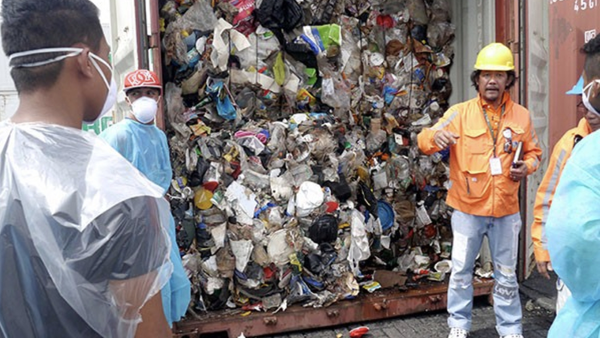Canada struck a conciliatory tone in response to Philippine President Duterte's fierce criticism of the North American country's failure to take back garbage it had earlier dumped in the islands.
"Canada is strongly committed to collaborating with the government of the Philippines to resolve this issue and is aware of the court decision ordering the importer to ship the material back to Canada," the country's embassy in the Philippines said in a statement.
The embassy added that a joint technical working group is examining the matter "with a view to a timely resolution".
Earlier this week, the Philippine's outspoken President Rogrigo Duterte lamented that Canada was treating his country as a "dumpsite" and pledged to declare a war against Ottawa if it failed to act on the issue.
READ MORE: Philippines' Duterte Vows to Declare War on Canada for Garbage Smuggling
Between 2013 and 2014, a private Canadian company shipped over 100 containers to the Philippines loaded with 2,450 tonnes of garbage. Local authorities found that they had been improperly labelled as plastics for recycling, while in fact they contained household garbage such as used adult diapers and kitchen waste.
Filipino authorities reportedly said that some of the containers were found to contain hazardous waste, and accused the firm of bringing them to the country illegally.
A Filipino court in 2016 ordered that half of the containers must be shipped back in accordance with the local legislation, but Canadian Prime Minister Trudeau argued that legal regulations in his country prevented it from bringing the trash back.
Since then, Canada has amended its regulations regarding hazardous waste shipments to prevent such conundrums from happening again.
Earlier this week, several environmentalist groups urged Trudeau to finally order his officials to return the garbage to Canada for disposal.
Campaigners argue that Canada's actions are in violation of the Basel convention, an international set of guidelines which both countries have agreed to. An amendment which, however, has yet to be ratified by both states, specifically prohibits the export of toxic or hazardous materials to developing nations without government consent.



